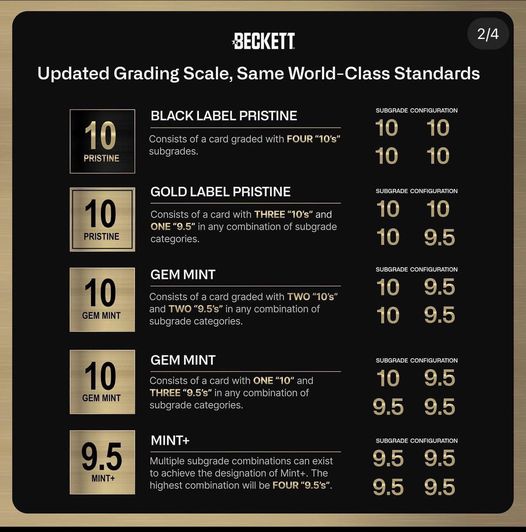Beckett Grading Services, a key player in sports card grading, is experiencing a significant downturn as reflected in the plummeting numbers of cards graded and legal troubles surrounding its owner. The company graded only 32,000 cards in November, marking a 43% decline year-over-year, signaling a worsening trend compared to its 13% decline in August. Greg Lindberg, the parent company’s owner, recently pleaded guilty to a massive insurance fraud scheme, causing financial instability within Beckett.
Lindberg’s legal issues have unveiled mismanagement problems at Beckett, with a $100 million loan against the company resulting in only $500,000 reaching Beckett Grading Services. This mismanagement has raised concerns about the company’s future, with the possibility of liquidation looming amidst scrutiny of Lindberg’s assets. The scandal has rattled collector confidence, exacerbating Beckett’s struggles in a competitive grading industry that is currently thriving.
Despite the industry’s growth, Beckett has failed to capitalize on the momentum, falling behind its competitors in market share. While Beckett specialized in grading sports cards, it now lags behind CGC, known for TCG and non-sport cards, in the sports card grading sector. Beckett’s decline is evident as other grading companies like PSA, SGC, and CGC experience year-over-year increases, pushing Beckett to fourth place among the “Big Four” grading companies.
Although Beckett maintains strength in Black Label 10s and Pristine 10s, appealing to TCG collectors, this niche market success is overshadowed by losses in high-volume grading. The company’s competitors have intensified their promotional efforts, drawing attention away from Beckett’s offerings. Despite introducing holiday specials, Beckett’s higher pricing hampers its competitiveness in the current market landscape.
Beckett’s diminishing role in grading iconic cards, such as the 1952 Mickey Mantle and the 1989 Upper Deck Ken Griffey Jr., is another concern. Its decline in grading activity for these marquee items underscores the company’s waning influence in areas where it once stood out. However, Beckett maintains competitiveness in high-end basketball cards, TCG grading, and Topps Now cards, drawing demand in specific market segments.
As Beckett faces mounting challenges from legal issues, increased competition, and declining grading volumes, its future remains uncertain. The company’s inability to adapt to industry changes while losing ground to competitors like PSA and SGC suggests deeper underlying problems. While Beckett’s reputation for premium grading remains valuable in niche markets, it must address systemic issues to regain its footing and reverse its downward trajectory. Collectors and industry watchers will closely monitor Beckett’s journey to see if it can overcome adversity and redefine its position in the grading industry.

